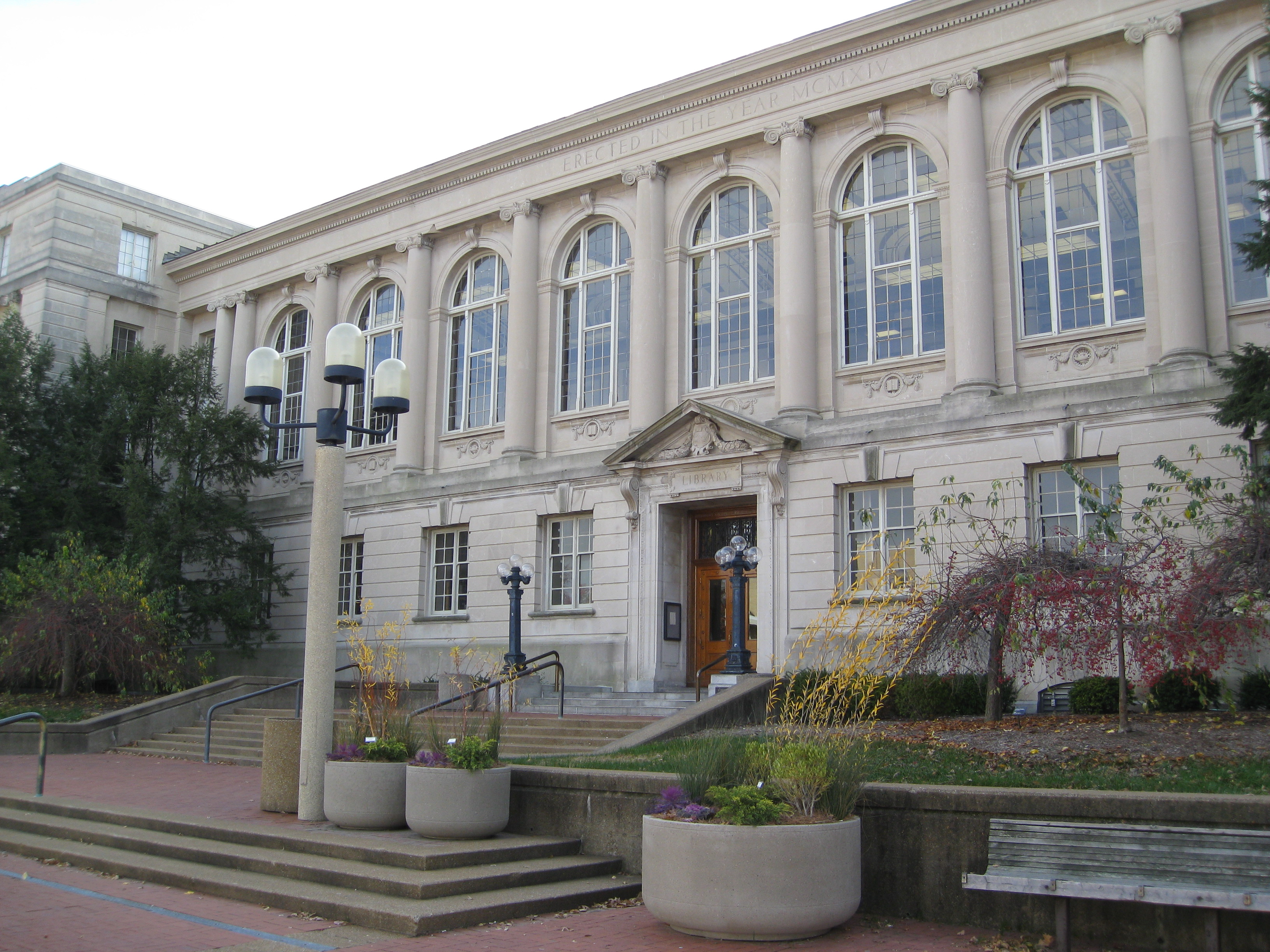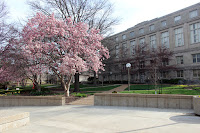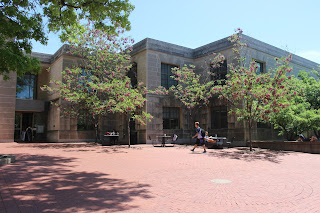I had the good fortune to recently interview Courtney Gillie, Library Information Specialist at University of Missouri (MU or "Mizzou") in Columbia, Missouri. It’s always exciting to meet colleagues across the country, especially when I get to learn more about a side of library science that I don’t work on in my day-to-day. Courtney’s gregarious interview was truly fun and I hope our professional paths cross in the future.“Archivists . . . need to be intersectional and inclusive.”
Courtney came to the archival profession in a roundabout way. Their academic career began in engineering, but they ultimately got their bachelor’s degree in English literature at Columbia College. Through their schooling, they began to learn about the ethics and mission of libraries, as well as the specific needs of archives, and realized how closely this aligned with their own values and passion. They got their Master’s in Library and Information Science from University of Missouri, and took enough classes to qualify to test to be Certified Archivist. Today they are working in the Special Collections & Rare Books section of the University of Missouri Library Archives.
 |
| MU's Library facade |
I saw a lot of parallels between the University of Missouri Library and my own institution (Oregon State University in Corvallis, Oregon). Both are land grant universities serving 20 to 30,000 undergraduates and several thousand graduate and post-graduate students. Both are university towns, which get busy during term but much quieter during breaks (“You can actually find parking!”). We both work within departments in the library, which report to department heads who then report to the associate university librarian (and from there to the university librarian, provost, and above). And we both have a teaching hospital on campus, although MU’s treats humans and OSU’s is a veterinary hospital.
MU’s land grant status has a much greater impact on Courtney’s day-to-day work compared to mine, as the archives’ mission is to act as an institutional repository for university business, such as papers authored by MU affiliates. The archive also collects materials related to state history. A unique collection Courtney has worked on is a collection of documents related to campus political movements. They recently hosted an exhibit on the demands made by students during the 1960s, which unfortunately look incredibly similar to the racial needs today.
 |
| MU's West Entrance |
Courtney shared some of their projects with me separately from our interview. One of these, a scrapbook of Christian College and Kemper Military School memorabilia, included items such as photographs of the school’s production of Rebecca, corsages from the spring formal, and the “5 cent a vote” fundraising competition for ugliest man. All of these items needed to be preserved in specific ways, cataloged to be findable, photographed and digitized with appropriate accessibility information. They worked with OCLC headings and completed the metadata information within ArchivesSpace in order to create finding aids to be hosted on the archives’ website (example here).
Typically, their patrons are student researchers, mostly at the graduate or postgraduate level. Occasionally they are able to support community members, who are often students at other universities needing their expanded archives. In general these patrons know the item they need, in which case Courtney assists them with finding and using the material. They also teach classes to undergraduate students, particularly introducing history, social studies, or Black studies majors to the materials in their collection.
The pandemic has greatly affected their work, especially the need for a lockdown, although they are quick to assure me they think the pandemic response is vital. However, “archives are a very physical product,” they told me. “You don’t get that personal connection as well...when you’re at a distance from the material.” They have come up with creative ways to combat this issue, such as video conferencing with students while they turn the pages of the document. Otherwise you’ll miss the details that make working with original documents so valuable - like a note saying “This meeting is so boring!” in the margins of someone’s meeting notes, or finding a surprising connection between seemingly unrelated topics. They miss the spontaneity and potential of this part of the research process.
 |
| Speakers Circle Entrance |
“We have a duty to make sure white supremacy isn’t enshrined in the archives”
Another challenge they face is the stagnation of the profession. It’s a constant push to educate people about the needs for access and accessibility of archives. “We have a duty to make sure white supremacy isn’t enshrined in the archives,” she tells me, as well as to ensure anyone, no matter their physical ability, can access the materials. They read a lot of ‘Library Twitter’, as well as zines, articles, and conference presentations on the topic, in order to learn more. Their own niche - and here their face lit up they answered - was to push to digital archives to improve access and accessibility.
What’s the future of archives? The future of archives is in many ways, not in archives. “We need to be intersectional and inclusive,” she says. Archivists need to go beyond simple descriptions of what materials consist of and include the context of those materials as well. It’s not enough to describe when a picture was taken, one must also ask what is the context? What was the racial dynamic at play here? That intersectionality can only enhance the daily work of assisting students and professors do research, providing images for publications, and consulting about copyright. Otherwise, “archivists can get tunnel vision,” Courtney says.
Courtney’s passion for the intersection between racial justice, accessibility, and the archival profession was clear from our interview. From engineering school to the archives, their pathway may not have been as direct as many librarians. However, they seem to have found their niche in the library world.
Image credits: MU Library's facade, credit to Chris Yunker, CC BY-SA 2.0 <https://creativecommons.org/licenses/by-sa/2.0>, via Wikimedia Commons | Other images courtesy Special Collections Staff, Ellis Library, "Speakers Circle Entrance"
No comments:
Post a Comment